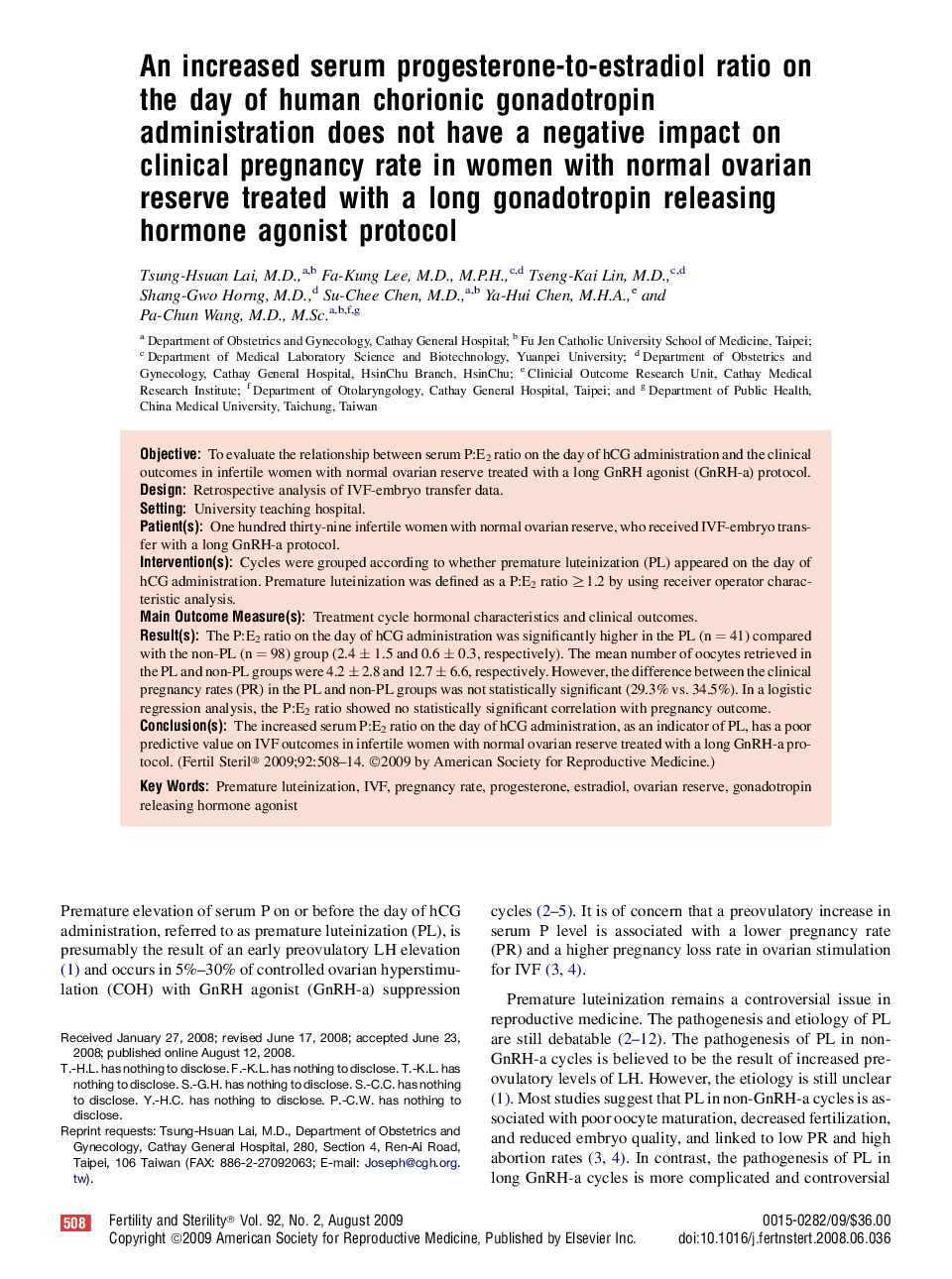| کد مقاله | کد نشریه | سال انتشار | مقاله انگلیسی | نسخه تمام متن |
|---|---|---|---|---|
| 3934122 | 1253370 | 2009 | 7 صفحه PDF | دانلود رایگان |

ObjectiveTo evaluate the relationship between serum P:E2 ratio on the day of hCG administration and the clinical outcomes in infertile women with normal ovarian reserve treated with a long GnRH agonist (GnRH-a) protocol.DesignRetrospective analysis of IVF-embryo transfer data.SettingUniversity teaching hospital.Patient(s)One hundred thirty-nine infertile women with normal ovarian reserve, who received IVF-embryo transfer with a long GnRH-a protocol.Intervention(s)Cycles were grouped according to whether premature luteinization (PL) appeared on the day of hCG administration. Premature luteinization was defined as a P:E2 ratio ≥1.2 by using receiver operator characteristic analysis.Main Outcome Measure(s)Treatment cycle hormonal characteristics and clinical outcomes.Result(s)The P:E2 ratio on the day of hCG administration was significantly higher in the PL (n = 41) compared with the non-PL (n = 98) group (2.4 ± 1.5 and 0.6 ± 0.3, respectively). The mean number of oocytes retrieved in the PL and non-PL groups were 4.2 ± 2.8 and 12.7 ± 6.6, respectively. However, the difference between the clinical pregnancy rates (PR) in the PL and non-PL groups was not statistically significant (29.3% vs. 34.5%). In a logistic regression analysis, the P:E2 ratio showed no statistically significant correlation with pregnancy outcome.Conclusion(s)The increased serum P:E2 ratio on the day of hCG administration, as an indicator of PL, has a poor predictive value on IVF outcomes in infertile women with normal ovarian reserve treated with a long GnRH-a protocol.
Journal: Fertility and Sterility - Volume 92, Issue 2, August 2009, Pages 508–514